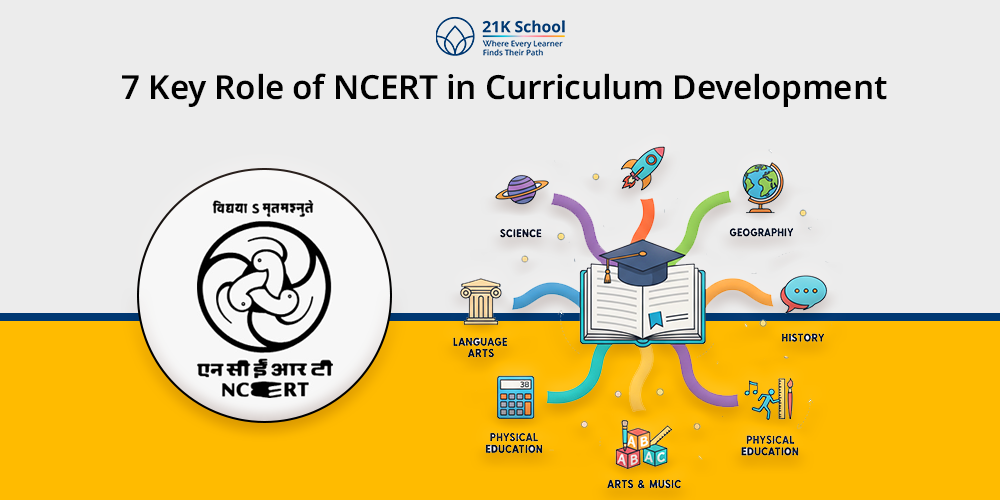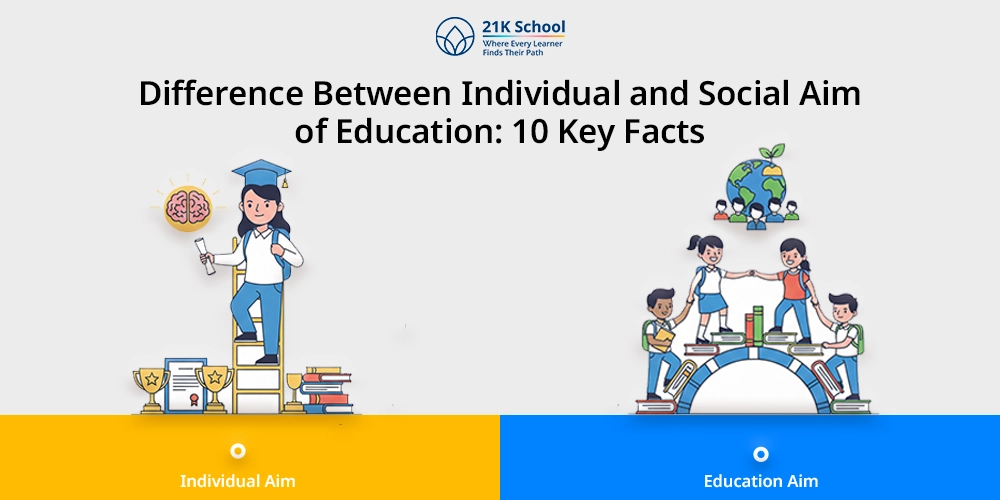
National Council of Educational Research and Training in India is one of the popular and recognised bodies shaping the educational framework for a long time.
For millions of learners, the role of NCERT is more than learning. It is also responsible for students’ academic planning, curriculum design, and educational research.
The role of NCERT in curriculum development is not limited to effective textbooks; it aims to make education more impactful competency-based learning .
In this blog, we will understand the role of NCERT in curriculum development and 7 key points one must consider.
Contents
What Is Curriculum Development in NCERT?
Curriculum development means procedure of planning, designing, implementing, and evaluating learning activities for smooth flow of education programs.
It helps schools and facilitators to understand and implement the curriculum including educational goals, selecting content, and developing assessment strategies.
Curriculum development in NCERT consist of:
- It prepares textbooks, syllabi, and learning materials for students.
- Creating National Curriculum Frameworks.
- Help in research and experimentation for future growth.
- Ensuring equity, inclusivity, and quality education .
Key 7 Role of NCERT in Curriculum Development
The objective of NCERT is effective curriculum development. Given below 7 key role of NCERT in curriculum development:
1. Developing National Curriculum Frameworks (NCFs)
NCF guiding on educational policies, teaching principles, learning outcomes, and assessment patterns.
And developing National Curriculum Frameworks is the primary role of NCERT in Curriculum Development. NCERT till now had developed various (NCFs (1975, 1988, 2000, 2005, and the latest NCF 2023).
The latest version of NCF 2023 showcase:
- Competency-based education.
- Flexibility in subject choices.
- Holistic development.
By developing NCF NCERT make sure the curriculum is aligned with educational objectives and students develop 21st century skills .
2. Designing Syllabi and Textbooks
One of the effective contributions of NCERT in effective learning is designing syllabi and textbooks.
From primary to senior secondary each textbook is designed to improve learners efficiency. That’s why schools affiliated with CBSE board and several state boards choose NCERT.
NCERT’s textbook development process includes:
- NCF guidelines and age-appropriateness.
- Examples from real-life situations.
- Educational activities , exercises, and projects.
With NCERT textbooks schools ensure a consistent foundation for quality education.
3. Research and Innovation in Education
For development of curriculum NCERT research and innovation in education helps in innovation which improve teaching and learning outcomes.
Common NCERT research areas include:
- Learning psychology.
- Child development .
- Equity and access in education.
- Pedagogical innovations.
- Educational evaluation and curriculum effectiveness studies.
Innovations like technology in education , different methodologies, and pedagogical strategies help in opening new doors of opportunity for students.
4. Promoting National Integration and Cultural Values
Education also requires national integration and cultural values. To promote all these curriculum development is the best way.
Through NCERT curriculum development one can focus on all national integration, cultural diversity, and constitutional values at once.
Some of the main objectives of NCERT textbooks and syllabi:
- Respect culture and heritage.
- democratic ideals, secularism.
- Gender equality.
- Responsibility and trust.
5. Teacher Training and Capacity Building
Teacher training and capacity building is one of the important parts to lay the foundation in a better way.
By implementation of NCERT textbooks one can improve teacher education and professional development .
There are various programs, workshops, and courses which are designed for teacher training and their capacity building.
Key initiatives teacher training and capacity building include:
- Orientation and refresher courses.
- Unique training programs.
- Mandatory pre-service teacher education.
- manuals, guidelines, and training modules for improvement.
6. Educational Technology Integration
Integration of technology in education is a blessing for students, teachers and systems for smooth flow.
It is an ideal way to learn outcomes and accessibility. Some popular initiatives implemented by NCERT are DIKSHA Platform, e-Pathshala, NROER, and PM eVIDYA.
Technology in education is highly beneficial especially for digital literacy .
7. Supporting Policy Implementation
NCERT is highly accepted and recognised because of its implementation of national education policies .
This helps in bridging the gap between policy making and classroom learning and practices.
It ensures that the education system in India remains intact with global standards. However, it also maintains its national priorities and cultural roots.
Conclusion
In today’s modern education , the role of NCERT in curriculum development is beyond textbooks.
Students now can shape their future with more effective, dynamic, evidence-based, and future-ready learning.
By including various effective techniques like digital learning and training teachers education is more secured and impactful.
Implementation of NCERT in school curriculum ensures skills and creativity, values and culture, learning and examination success.
Under the National Education Policy 2020 NCERT evolved and provided undated academic solutions to improve Indias school education system
.
Empower learners to learn and grow in a positive learning environment
.

